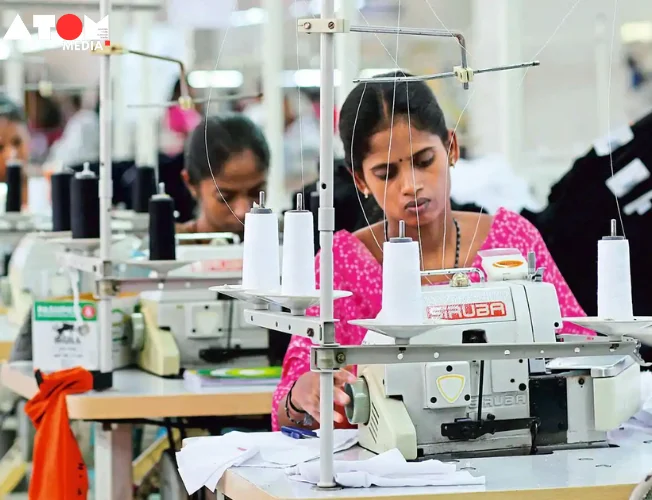India’s economic landscape is undergoing a significant transformation, with aspirations to become the world’s third-largest economy. However, to achieve this ambitious goal, the nation needs to leverage the full potential of its workforce, and that includes its increasingly skilled and educated women. Despite progress in areas like education and healthcare, India still faces challenges in ensuring women’s full economic inclusion.
The Economic Imperative of Women’s Participation
While India’s GDP growth remains robust at 7.3% in 2023, the nation’s female workforce participation rate falls behind countries like Bangladesh, Indonesia, and Brazil. The economic benefits of fostering women’s participation are undeniable. Studies suggest that India’s GDP could increase by a staggering 27% to $770 billion if female workforce participation reaches parity with men.
Entrepreneurship: A Path for Women’s Economic Empowerment
Entrepreneurship presents a promising avenue for Indian women who face limitations in leveraging their skills and education for traditional employment. It offers the flexibility to manage work hours around family responsibilities, allowing women to contribute to the economy while fulfilling their domestic roles.
Challenges Faced by Women Entrepreneurs
Despite the potential benefits, women entrepreneurs in India navigate a challenging landscape. While the government acknowledges the growth potential of the small and medium enterprise (SME) sector, the support system for women-led businesses remains inadequate. A 2020 report by the Centre for Women’s Enterprise (CWE) identified six key access hurdles faced by women entrepreneurs:
Social and Cultural Norms: Traditional expectations often prioritize marriage, childcare, and eldercare over women pursuing careers.
Support Systems: A lack of affordable, reliable childcare and eldercare services, particularly in urban areas with nuclear families, creates significant hurdles.
Safety Concerns: Women often face safety issues while commuting and even at their workplaces.
Why Consider Entrepreneurship?
For many women in India, entrepreneurship provides a path to bridge the gap between their aspirations and the limitations imposed by societal norms. It empowers them to utilize their skills, education, and experience to not only earn a living but also create jobs and contribute to the nation’s economic growth.
Barriers for Aspiring Businesswomen
Despite government initiatives aimed at fostering the SME sector, women entrepreneurs continue to face significant roadblocks:
Access to Markets: Finding avenues to sell their products and services remains a challenge for many women-led businesses.
Access to Finance: Securing funding is a major hurdle, with limited access to traditional financing options and angel investors.
Access to Networks: Building strong professional networks is crucial for business growth, but women often lack access to these networks.
Access to Information: Staying informed about relevant business resources, regulations, and opportunities can be difficult without proper access to information.
Access to Skills: Training and development opportunities to hone entrepreneurial skills are often limited for women.
Access to Technology: Embracing technology is essential for business growth in today’s world, but access to technology and training remains a challenge for many women entrepreneurs.
A Glimpse of Hope: Funding Opportunities
Despite the global economic slowdown, India’s robust economy offers a glimmer of hope for funding women-owned and led businesses. Here are some promising initiatives:
The WTO-ITC WEIDE Fund: This joint initiative by the World Trade Organization (WTO) and the International Trade Center (ITC) aims to empower women-led businesses by leveraging digitalization to enhance their competitiveness and access new markets.
Angel Investor Funds: An angel fund dedicated to connecting Indian women entrepreneurs with global investors is on the horizon.
Government Grants and Loans: State and central government agencies offer grants and low-interest loans specifically for women entrepreneurs.
Unlocking Market Opportunities
Public procurement mandates by central, state governments, and the corporate sector represent a significant potential market for women-owned businesses. However, a significant gap exists between the available opportunities and actual utilization. For instance, the Government of India has a 3% mandate for procurement from women-owned MSMEs, but only 1.22% was utilized in 2023.
Sensitization and Training: Bridging the Gap
Effective implementation of these mandates requires sensitizing procurement teams and integrating Diversity, Equity, and Inclusion (DEI) training within organizations. Additionally, women suppliers need support in understanding government and corporate procurement processes, product quality standards, and timely delivery.
Sector-Specific Growth: Areas of Focus
The Indian entrepreneurial landscape is witnessing a surge in certain sectors, with women at the forefront of innovation:
Circular Economy/Sustainability: Businesses focused on eco-friendly solutions and responsible resource utilization are gaining traction.
Green Technology & Clean Technology: Women entrepreneurs are actively contributing to the development
Read more: Marketing News, Advertising News, PR and Finance News, Digital News





